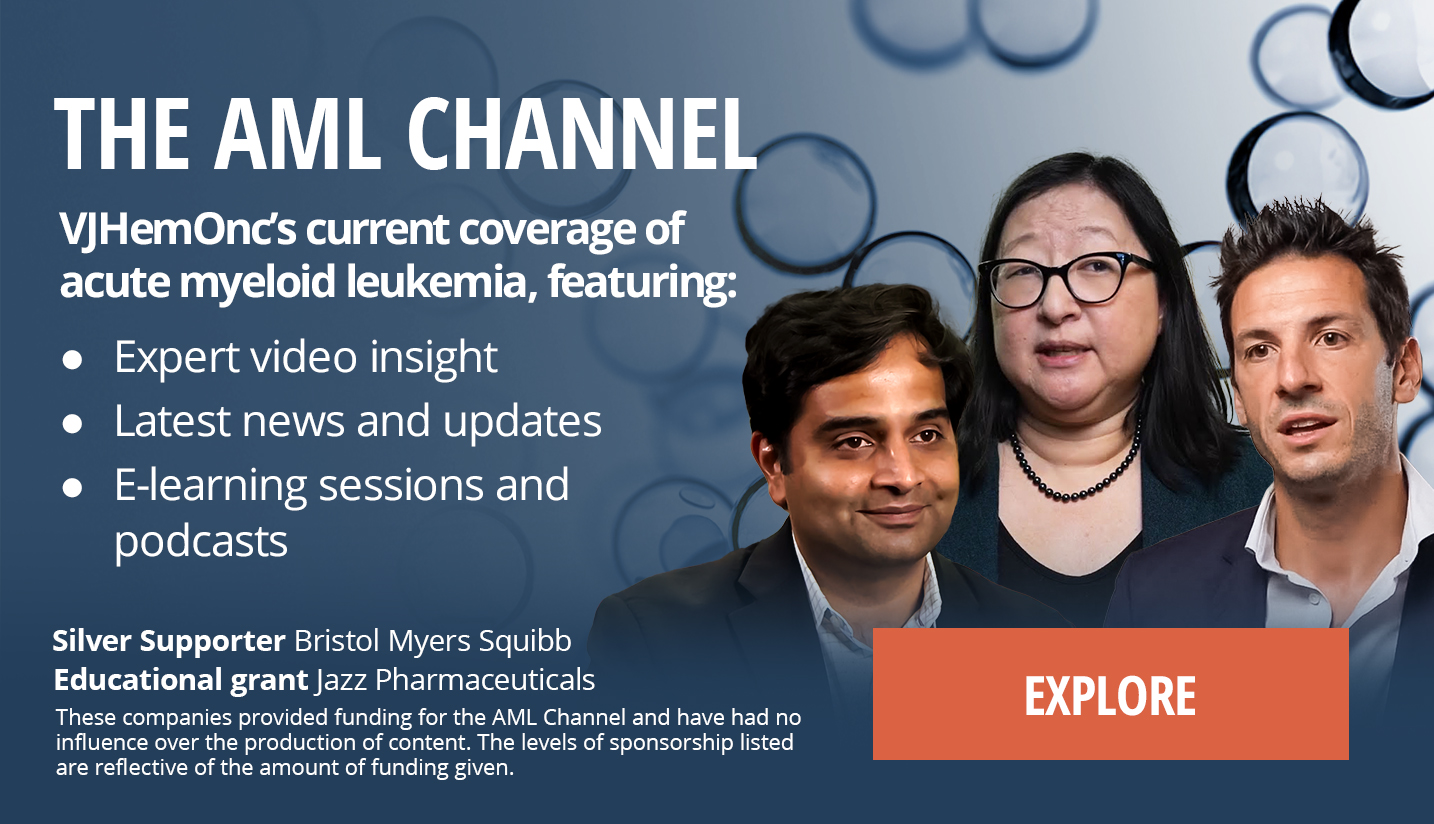So the Phase I ADVENT-AML trial is our investigator-initiated trial at MD Anderson and Case Western University. It’s an academic collaboration. What we are doing is we are combining an allogeneic ex vivo expanded activated NK cell, mismatched NK cells, with azacitidine and venetoclax for AML. The initial portion, the dose escalation, we conducted that in relapsed/refractory AML. And then we currently have the frontline cohort ongoing...
So the Phase I ADVENT-AML trial is our investigator-initiated trial at MD Anderson and Case Western University. It’s an academic collaboration. What we are doing is we are combining an allogeneic ex vivo expanded activated NK cell, mismatched NK cells, with azacitidine and venetoclax for AML. The initial portion, the dose escalation, we conducted that in relapsed/refractory AML. And then we currently have the frontline cohort ongoing. We presented the data from the salvage cohort, the dose escalation cohort. So we evaluated two dose levels, 500 million and 1 billion flat dose of allogeneic NK cells. And we’re delivering these NK cells on day 8 and day 15 of the cycles. And azacitidine and venetoclax is delivered as standard per USPI. And so the novelty of this trial is that this is the first time NK cells are being combined with venetoclax. And the other novelty is that we are evaluating NK cells without standard lymphodepletion of fludarabine, cyclophosphamide, or bendamustine. We’re essentially using azacitidine and venetoclax as a lymphodepletion strategy. And the other rationale is that Aza-ven will, again, debulk the tumor, improve the effector-to-target ratio. Azacitidine works to upregulate epigenetically silenced tumor antigens and NKG2D ligands on the leukemia cells, making them more detectable and susceptible to immune cell-mediated killing. And with the triplet, we’re engaging the extrinsic and the intrinsic apoptotic cascades. And again, as multiple groups have shown, that BCL2 inhibition synergizes with immunotherapy to reduce the apoptotic threshold and make it more easier for the immune cells to kill leukemia. So with that rationale, we evaluated six patients, relapsed/refractory patients in the dose escalation cohort. What we established that this combination is safe. We did not see any acute GvHD because we’re delivering quite high doses of allogeneic NK cells. We did not see any acute GvHD, no CRS or ICANS, and we saw proof of biological activity. Even without lymphodepletion, we saw these NK cells persist between 1% to 5% of circulating immune cells, even two weeks after infusion and even longer in one patient. And this was remarkable because with allogeneic cell therapy platforms, we’re worried about limited persistence. But here we showed that in salvage population without lymphodepletion with just aza-ven, we can still have meaningful persistence of these cells. And we also evaluated our patient samples using single cell proteomics. And there we demonstrated in one of our patients who responded, we demonstrated that these NK cells are actually migrating into the bone marrow, leading to eradication of the leukemia. And in addition, they’re causing cytokine changes, showing favorable effect in these patients. So this is very encouraging data, and we’re now proceeding with the frontline cohort, and the frontline cohort is very exciting because this will be the first time that a cellular therapy is being evaluated in the frontline setting in acute myeloid leukemia. That trial is ongoing, and we’re looking forward to presenting that data at the upcoming meeting.
This transcript is AI-generated. While we strive for accuracy, please verify this copy with the video.















